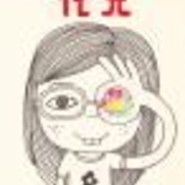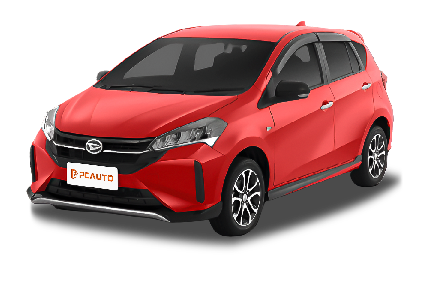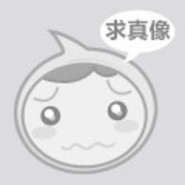Q
How many cylinders does a Daihatsu Sirion have?
As an economical and practical small car, the Daihatsu Sirion is popular in the Malaysian market for its fuel efficiency and nimble handling. Its engine configurations vary depending on the model and year. The common versions are equipped with 1.3-liter or 1.5-liter naturally aspirated engines, both featuring a 4-cylinder design. This kind of configuration is quite common in small cars, capable of balancing power output and fuel economy, which is ideal for city driving.
The 4-cylinder engine has a simple structure, low maintenance costs, and good running smoothness, making it the top choice for most family cars. For Malaysian consumers, such a configuration can not only meet the daily commuting needs but also reduce long-term usage costs. Moreover, the lightweight body of the Daihatsu Sirion, paired with the 4-cylinder engine, further improves fuel efficiency, making it highly suitable for the stop-and-go traffic conditions in Malaysia.
If you're interested in engine technology, you can keep an eye on the new models launched by Daihatsu in recent years. Some of them adopt the more advanced DVVT (Dual Variable Valve Timing) technology, which optimizes the low-speed torque and high-speed power performance. However, the classic 4-cylinder design of the Sirion remains a practical option.
Special Disclaimer: This content is published by users and does not represent the views or position of PCauto.
Related Q&A
Q
How many litres is a Daihatsu Sirion?
As an economical and practical small car, the Daihatsu Sirion is well-received by many consumers in the Malaysian market for its fuel efficiency and flexible handling. The engine displacement of the Daihatsu Sirion varies according to different years and versions. For early models, such as the 1.3-liter version from 2004 to 2009, it is equipped with a 1.3L K3-VE engine (about 1.3 liters), while the 1.5-liter version uses a 1.5L 3SZ-VE engine (about 1.5 liters). Subsequent facelifts may also continue with similar configurations. Specifically, it is necessary to refer to the actual vehicle nameplate or the official manual.
For Malaysian users, this kind of small car is very suitable for urban commuting. It not only has high fuel efficiency but also relatively affordable maintenance costs. At the same time, as a technical partner of Perodua, Daihatsu has a well-established local after-sales service network and an abundant supply of parts.
If you are considering a used car or vehicle maintenance, it is recommended to regularly check the capacity of the engine oil and coolant and follow the maintenance cycle recommended by the manufacturer to ensure the long-term stable operation of the vehicle. Although engines with small displacements like these have moderate power, proper maintenance can significantly extend their service life.
Q
How long does a Daihatsu Sirion last?
As an economical and practical small car, the Daihatsu Sirion is favored by many car owners in the Malaysian market for its durability and low maintenance costs. Its service life mainly depends on daily maintenance and driving habits. Under the condition of regularly replacing consumables such as engine oil and filters and following the manufacturer's maintenance manual, it can usually travel over 150,000 to 200,000 kilometers. Some well-maintained vehicles can even exceed 250,000 kilometers.
The hot and rainy climate in Malaysia has a certain impact on rubber parts and electronic components. It is recommended to regularly check easily-aging parts such as belts and sealing strips, and pay attention to cleaning the cooling system to prevent overheating. The 1.3L and 1.5L engines equipped in this car have mature technologies, with sufficient supply of spare parts at affordable prices, which is very beneficial for long-term use.
It's worth noting that small cars have the advantage of flexible parking on Malaysian city roads. The fuel economy of the Sirion (about 15-18 km/L) is particularly practical for local users who often face oil price fluctuations. If you plan to buy a used Sirion, it is recommended to focus on checking the condition of the gearbox and the rust situation of the chassis, which are common concerns for high-mileage vehicles in tropical regions.
Q
What is the difference between Daihatsu Boon and Sirion?
The Daihatsu Boon and Sirion are two small cars with different positioning, and the main differences lie in their design and market positioning. The Boon is more inclined towards being an economical and practical vehicle. It has a compact body, which is suitable for city driving, and it offers excellent fuel consumption performance. The interior is simple and focuses on functionality, making it a good choice for consumers with limited budgets.
On the other hand, the Sirion is positioned slightly higher. It has a more stylish exterior design, uses more refined interior materials, and features a more flexible space layout. It is suitable for family users who pursue both comfort and practicality. Both cars are equipped with Daihatsu's reliable engine technology, but the Sirion usually comes with a more comprehensive range of configurations. For example, it may be equipped with more safety technologies or entertainment systems.
In the Malaysian market, both models have been popular for their affordable prices and low maintenance costs. However, the specific choice depends on individual needs. The Boon is suitable for daily commuting, while the Sirion is more suitable for users with higher quality requirements. Additionally, as a member of the Toyota Group, Daihatsu models have a good reputation for durability and after-sales support, which is also an important factor for Malaysian consumers to consider.
Q
What is the fuel economy of the Daihatsu Sirion?
As a practical and economical small car, the Daihatsu Sirion performs well in fuel economy. The specific fuel-consumption data will vary depending on different years and engine configurations. Generally, for models equipped with a 1.3L or 1.5L engine, the fuel consumption is about 6-7 liters per 100 kilometers under city driving conditions, and it can drop to around 5-6 liters per 100 kilometers when driving on the highway. Overall, it's suitable for daily commuting and family use.
For Malaysian consumers, considering the local road conditions and fuel prices, the fuel-saving feature of the Sirion can help reduce the cost of car use. It's especially suitable for users with limited budgets who still need a reliable means of transportation. Moreover, it's quite convenient to drive and park a small car in Malaysian cities. Additionally, the Daihatsu brand has a well-established after-sales service network locally, so the maintenance is also relatively cost-effective.
If you have higher requirements for fuel economy, you can also pay attention to the regular maintenance of the vehicle. For example, keep the tire pressure normal and replace the air filter regularly. These small details can further optimize the fuel-consumption performance.
Q
What is the engine capacity of the Daihatsu Sirion?
The Daihatsu Sirion is a sister model of the Perodua Myvi. Its engine capacity varies according to different years and versions. Early models, such as the 2005 version, were equipped with a 1.3-liter K3-VE engine (1298cc), while later versions, like the 2010 model, were upgraded to a 1.5-liter 3SZ-VE engine (1495cc). Both of these engines are well - known for their fuel efficiency and durability, making them suitable for the urban road conditions in Malaysia.
It's worth noting that the Sirion shares powertrain technology with the Myvi. As a result, the maintenance costs are relatively low and there is an abundant supply of parts, which is very practical for Malaysian car owners. Engine capacity is one of the important indicators for measuring a car's power output. Generally speaking, the larger the displacement, the stronger the power, but the fuel consumption will also increase accordingly. The 1.3-liter and 1.5-liter engines of the Sirion have achieved a good balance between power and fuel economy, which is also one of the reasons for its popularity in the Southeast Asian market.
For Malaysian consumers who want to buy a second-hand Sirion, it is recommended to choose the appropriate displacement according to their daily driving needs. If you often drive long distances, you can consider the 1.5-liter version, while the 1.3-liter version is more economical if you mainly use the car for urban commuting.
Q
Is the Daihatsu Sirion petrol or diesel?
In the Malaysian market, the Daihatsu Sirion is mainly available in gasoline engine versions, and no diesel models have been launched. This small car is popular among local consumers for its cost-effectiveness and low fuel consumption, making it particularly suitable for city commuting. The 1.3L or 1.5L gasoline engines equipped in this car adopt the DVVT (Dual Variable Valve Timing) technology. This technology optimizes fuel efficiency while ensuring power output, meeting the needs of Malaysian users for daily commuting vehicles
It's worth noting that the Malaysian automotive market is dominated by gasoline-powered cars. This is mainly influenced by the government's fuel subsidy policy and the relatively high maintenance costs of diesel cars. Therefore, most Japanese small cars are launched with gasoline versions first. For buyers with a limited budget who value durability, the Sirion's gasoline engine combined with a lightweight body design can achieve an actual fuel consumption of over about 15 km/L. Its engine technology has also been proven in the market for a long time, and the local parts supply and repair network are quite well-established.
If we consider diesel cars, the Malaysian market focuses more on pickups or large SUVs. These types of vehicles require higher torque to handle the load, while city cars like the Sirion usually don't need the extra low-end torque advantage of diesel engines.
Q
Is the Daihatsu Sirion a reliable car?
As a compact car focusing on economy and practicality, the Daihatsu Sirion is quite popular among many consumers in the Malaysian market for its fuel-efficiency, agility, and low maintenance costs. Its reliability generally meets the consistent standards of Japanese cars of this brand.
The Sirion is equipped with a 1.3L or 1.5L naturally-aspirated engine with mature technology. Coupled with a lightweight body design, it shows excellent fuel economy during urban commuting. Meanwhile, the simple mechanical structure also reduces the failure rate during long-term use, and the daily maintenance cost is relatively affordable, making it suitable for family users with limited budgets.
However, it should be noted that if some early models lack regular maintenance, there may be problems such as aging of the suspension system or occasional issues with small electronic components. It is recommended to give priority to vehicles with a complete maintenance record when buying a second-hand Sirion.
For Malaysian consumers, the supply of Sirion parts is relatively abundant, and the maintenance convenience is better than that of some niche models. But we also need to view rationally the common shortcomings of compact cars, such as the sound insulation effect and high-speed stability.
If you are looking for higher-end configurations or more refined interiors, the Perodua Myvi or Honda Jazz in the same class may be worth comparing. However, the Sirion is still a practical choice for basic transportation needs, especially suitable for users who value practicality and vehicle maintenance costs.
Q
Which country made Daihatsu Sirion?
The Daihatsu Sirion is a compact car produced by Daihatsu Motor Company, a Japanese automaker. This brand belongs to the Toyota Group and is well-known for manufacturing economical and practical small cars. The Sirion was first introduced in the 1990s, mainly targeting the Asian and European markets. Its design focuses on fuel economy and flexibility for city driving, making it highly suitable for the traffic environment in Malaysia.
In Malaysia, the Sirion was once sold through local assembly (CKD). Some models were equipped with 1.3-liter or 1.5-liter engines that met local requirements, achieving a good balance between power and fuel consumption. It's worth mentioning that as a subsidiary brand of Toyota, Daihatsu has advantages in technology sharing and parts supply. This results in relatively low maintenance costs for the Sirion, and its parts are easier to obtain in the Malaysian market.
Although the Sirion has gradually been replaced by new-generation models, its durability and practicality are still recognized by many Malaysian car owners, and it can still be seen in the second-hand market. For consumers with a limited budget who need a reliable means of transportation, the Sirion used to be a great choice.
Q
What is the fuel consumption of the Daihatsu Sirion?
As an economical and practical small car, the Daihatsu Sirion boasts quite good fuel economy. The specific fuel consumption varies according to different production years and engine configurations. Generally speaking, the urban fuel consumption of the 1.3-litre and 1.5-litre engine versions is around 6 to 7 litres per 100 kilometers, and it can drop to 5 to 6 litres per 100 kilometers when driving on the highway. The actual figures are also affected by driving habits, road conditions, and the vehicle's maintenance status.
For Malaysian consumers, this car is highly suitable for urban commuting. It not only has low fuel costs but also relatively affordable maintenance expenses, making it a great value-for-money option. Moreover, the compact body design of the Daihatsu Sirion makes it extremely maneuverable on Malaysia's narrow streets and in crowded parking lots. At the same time, its reliable quality and low fuel consumption meet the local consumers' requirements for economical vehicles.
If you're considering buying a fuel-efficient and practical small car, the Daihatsu Sirion deserves to be on your shortlist. It's recommended that you take a test drive before purchasing to better understand its actual driving experience and fuel consumption performance.
Q
What is the lifespan of a Daihatsu Sirion?
As an economical and practical small car, the Daihatsu Sirion is favored by many car owners in the Malaysian market for its durability and low maintenance costs. Its service life typically ranges from 10 to 15 years, depending on the maintenance condition, driving habits, and usage environment. If you regularly replace consumables such as engine oil and filters and strictly follow the manufacturer's recommended maintenance cycle (e.g., once every 5,000 to 10,000 kilometers), the vehicle's engine and transmission system can remain in good condition. The tropical climate in Malaysia may accelerate the aging of rubber parts (such as belts and bushings), so it is recommended to inspect or replace them every 5 years. In addition, the 1.3L and 1.5L engines of the Sirion have mature technologies and sufficient parts supply, resulting in relatively low long-term usage costs. It's worth noting that in the used-car market, Sirion models with complete maintenance records have a relatively high residual value. The models after 2010 offer better comfort due to the improved suspension tuning. For Malaysian consumers with limited budgets who are looking for a reliable means of transportation, this car is worth considering. However, it is advisable to conduct a computer diagnosis before purchasing to ensure there are no hidden faults, and it's better to choose vehicles that have been maintained at the authorized dealership to reduce the risk of subsequent repairs.
Popular Cars
Model Year
Car Compare
Car Photo
Latest Q&A
Q
Do I need an alignment after rotation?
Whether a four-wheel alignment is needed after tire replacement depends on the actual condition of the vehicle. If only the tires are replaced and the vehicle has been driving normally without deviation, steering wheel vibration, or uneven tire wear, a four-wheel alignment is usually not required immediately, but wheel balancing must be performed to ensure stability when the wheels rotate at high speeds. However, if problems such as directional deviation, reduced steering precision, misaligned steering wheel, or abnormal tire wear (e.g., one-sided wear) occur after tire replacement, four-wheel alignment is necessary to adjust the geometric parameters of the suspension system (including caster angle, front wheel camber, etc.), thereby restoring the vehicle's straight-line driving stability and uniform tire contact with the road. Moreover, if chassis component repairs (such as suspension or steering system) are involved during tire replacement or the vehicle has been in a collision, four-wheel alignment becomes an essential step, as it can effectively reduce abnormal tire wear, improve handling safety, and lower fuel consumption. It is recommended to check the alignment parameters regularly every 20,000 kilometers or once a year. If you frequently encounter rough road conditions (such as curbs or speed bumps) during daily driving, the inspection interval should be shortened accordingly. Professional technicians can measure the data using specialized equipment and compare it with the manufacturer's specifications to determine whether adjustments are needed.
Q
Is it okay to rotate tires every 10,000 km?
Rotating tires every 10,000 kilometers is a reasonable and necessary maintenance measure, especially for fuel vehicles, as this frequency can effectively balance the wear difference between front and rear tires. Tire rotation involves regularly adjusting the installation positions of tires (e.g., moving front tires to the rear), which ensures more uniform wear across all tires, thereby extending the overall service life by approximately 20%-30%. For fuel vehicles, it is recommended to rotate tires every 10,000 kilometers, while for new energy vehicles, due to their greater weight and stronger torque output, the interval should be reduced to 8,000 kilometers. During rotation, the cross-rotation method should be employed (i.e., moving front tires to the opposite rear positions), and tire pressure should be checked simultaneously to ensure it meets the specified standards (2.3-2.5 bar for fuel vehicles, with an additional 0.2 bar for new energy vehicles). It is important to note that if a tire exhibits abnormal unilateral wear, bulges, or tread depth below 1.6 millimeters, simple rotation is not recommended and the tire should be replaced immediately. Regular monthly tire pressure checks and removal of debris from treads can further enhance tire performance and safety.
Q
What happens if you don't rotate tires?
If tire rotation is not performed regularly, it will lead to uneven tire wear, which in turn causes multiple problems. For front-wheel-drive vehicles, the front tires bear both driving and steering functions, so their wear rate is significantly faster than that of the rear tires; for rear-wheel-drive vehicles, since power is concentrated on the rear tires, the rear tires wear more noticeably. Long-term failure to rotate tires will shorten the overall tire life by 20%-40%—the front tires may be scrapped prematurely while the rear tires remain relatively new, resulting in resource waste. In addition, uneven wear reduces traction, particularly on wet surfaces, which can easily lead to skidding or a 10%-15% increase in braking distance, thereby elevating driving risks. Irregular wear also exacerbates tire noise and increases fuel consumption by 0.3-0.8 liters per 100 kilometers due to uneven rolling resistance. It is recommended to rotate tires every 10,000 to 15,000 kilometers. For front-wheel-drive vehicles, the cross-rotation method should be employed (left front to right rear, right front to left rear), while for rear-wheel-drive vehicles, the rear tires need to be crossed to the front. After rotation, tire pressure (the standard value typically ranges from 2.3 to 2.6 bar) should be verified and wheel balancing performed to prevent high-speed vibrations. If the tires exhibit irregular wear patterns or the tread depth falls below 1.6 mm, they should be replaced immediately. Regular tire rotation not only prolongs tire lifespan but also enhances fuel efficiency and driving safety. The cost of a single rotation is approximately 50 to 100 ringgit, substantially lower than the expense of premature tire replacement.
Q
Is it good to rotate car tires?
Tire rotation is an important maintenance measure to ensure even tire wear and extend service life. It is recommended to perform it every 5,000 to 10,000 kilometers or when uneven wear is detected. For front-wheel drive vehicles, the front tires wear faster as they handle steering and braking tasks, so they need to be cross-rotated with the rear tires (left front to right rear, right front to left rear). For rear-wheel drive vehicles, the rear tires should be diagonally swapped with the front tires to balance the wear of the drive wheels. If the tires have a directional tread pattern or asymmetric design, the rotation direction must be maintained, and only front-to-rear swaps on the same side are allowed to avoid affecting handling on wet and slippery roads. After rotation, the tire pressure should be adjusted to the standard for the corresponding wheel position, and it is recommended to perform dynamic balancing and four-wheel alignment simultaneously to optimize driving stability. Note that snow tires or studded tires cannot be rotated, and tires with different front and rear sizes can only be swapped left and right. Regular rotation can reduce abnormal wear (such as uneven wear or wavy patterns), improve grip and driving quietness, reduce safety hazards caused by tire problems, and save replacement costs in the long run. The specific operation should be based on the vehicle manual. If there is a lack of guidance, the cross-rotation method for bias-ply tires or the same-side rotation method for radial tires can be prioritized.
Q
How often should car tyres be rotated?
The replacement cycle of car tires should be determined by comprehensively considering factors such as service life, mileage, driving habits, and environmental conditions. Generally, it is recommended to replace them every 3 to 5 years or after 60,000 to 80,000 kilometers of driving, whichever comes first. As rubber products, tires deteriorate over time. Even if the mileage threshold hasn't been reached, immediate replacement is necessary when sidewall cracks, bulges appear, or tread depth falls below 1.6 mm (verifiable with a coin test) to ensure safety. Due to their heavier weight and stronger torque output, new energy vehicles experience accelerated tire wear. It is advisable to shorten the inspection interval to every six months, with urban commuting replacement mileage typically ranging from 42,000 to 56,000 kilometers. Regular tire rotation helps distribute wear evenly. For front-wheel-drive vehicles, front-to-rear rotation every 8,000 to 10,000 kilometers is recommended, while for new energy vehicles with higher front axle loads, this interval can be reduced to 6,000 to 8,000 kilometers. Additionally, maintaining cold tire pressure at 2.3 to 2.5 bar (add 0.2 bar for new energy vehicles) and avoiding aggressive maneuvers like rapid acceleration and hard braking can extend tire lifespan by 15% to 20%. Tires exceeding 6 years from their production date (identifiable via the DOT code on the sidewall) should be replaced regardless of apparent condition.
View More


















Pros
Cons